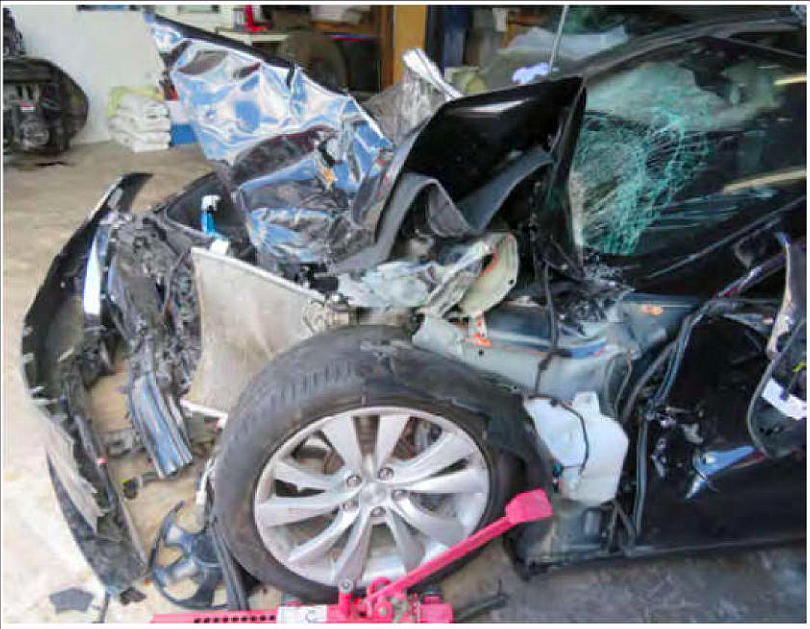- December 17, 2025
-
-
Loading

Loading

California-based auto manufacturer Tesla Inc. is again being challenged in court over its autopilot system – this time by a Winter Garden resident.
Shawn Hudson, who was involved in a collision in his autopilot-equipped Tesla vehicle on Oct. 12, filed a lawsuit against the automaker on Oct. 30, alleging the company uses misleading advertising regarding its autonomous driving system.
Hudson believes Tesla’s autopilot system is dangerous because it was unable to detect a disabled Ford vehicle left on a highway, which left Hudson with severe injuries and destroyed the entire front section of his vehicle, according to court documents.
The lawsuit is not the first of its kind for Tesla, as the company’s semi-autonomous vehicles have received heavy news coverage involving similar collisions with stationary objects and parked cars.
“In reality, Tesla’s autopilot system does not and cannot function as Tesla claims and is dangerous to operate in motor vehicles that are intended to be driven on our nation’s highways,” the official lawsuit reads. “Specifically, despite Tesla’s claim that its autopilot system is designed for use at highway speeds, the autopilot system is unable to reliably detect stationary objects such as disabled vehicles or other foreseeable roadway hazards, posing an inordinately high risk of high-speed collisions, severe injury and death both to Tesla’s passengers and to the driving public.”
Hudson, who works at a car dealership in Fort Pierce, reportedly purchased the Tesla vehicle to alleviate his lengthy two-hour commutes. After testing out a loaner vehicle equipped with the autopilot system, Hudson decided to buy an autopilot-equipped Tesla vehicle.
“After a weekend of testing Tesla’s autopilot feature, Hudson was convinced and ordered a 2017 Tesla Model S equipped with autopilot,” court documents state. “Hudson paid an additional $5,000 for the autopilot upgrade. Over the next year, Hudson drove his Model S over 98,000 miles, predominantly on Florida’s Turnpike, for his daily commute where he used the autopilot system frequently.”
According to court documents, Hudson was sold the vehicle by a sales representative with the understanding that it had numerous safety features and the ability to automatically avoid collisions and roadway hazards with minimal user input or oversight.
“Tesla’s sales representative further advised Hudson that, in the event the vehicle detects a hazard, the autopilot system is designed to also alert passengers so that they could take control of the vehicle if necessary,” the lawsuit reads. “Tesla’s sales representative reassured Hudson that all he needed to do as the driver of the vehicle is to occasionally place his hand on the steering wheel and that the vehicle would do everything else.”
According to the lawsuit, Hudson is also suing the owner of the disabled Ford vehicle for negligence. Hudson's lawyer did not return calls before press time.